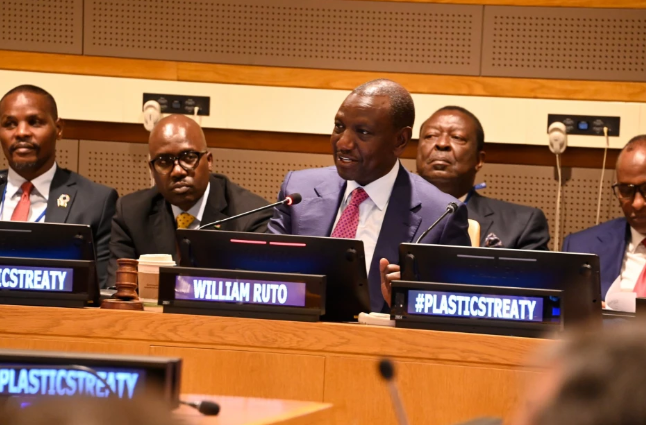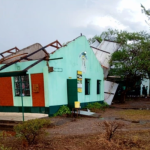African leaders convened for the second session of the Committee of African Heads of State and Government on Climate Change (CAHOSCC), focusing on the escalating climate crisis. The meeting, chaired by Kenyan President William Samoei Ruto, took place on the sidelines of the United Nations General Assembly, with the aim of aligning Africa’s strategy for the upcoming COP29 summit in Baku, Azerbaijan, while showcasing the continent’s ambitious climate agenda.
In his opening remarks, President Ruto reaffirmed Africa’s leadership in promoting climate-positive growth, referring to the Nairobi Declaration as a game-changing blueprint. Endorsed by the African Union (AU), the Declaration positions Africa as a global frontrunner in sustainable development by integrating economic growth with climate resilience.
“Africa is at a crossroads,” President Ruto stated. “While we bear the brunt of climate impacts disproportionately, we also hold the resources and the potential to drive global green growth.” He underscored the urgent need for strategic investments, highlighting the severe climate challenges Africa currently faces, such as prolonged droughts in Southern Africa, devastating floods in the Sahel and West Africa, and widespread desertification in North Africa.
President Ruto also introduced the African Green Industrialisation Initiative (AGII), a collaborative platform designed to attract significant investments into large-scale green industrial and infrastructure projects across the continent. This initiative brings together African leaders, international financial institutions, industry players, and philanthropic organizations to support Africa’s transition to a low-carbon, climate-resilient economy.
“Investments in renewable energy, sustainable agriculture, and nature-based solutions are crucial for ensuring that Africa not only adapts to climate change but also prospers within the new global economic framework,” Ruto emphasized.
Despite a record global investment of $1.8 trillion in the energy transition in 2023, Africa secured less than 3% of that total investment.
With a rapidly growing population and widespread energy poverty, President Ruto stressed the urgent need to correct the significant imbalance in global investment. He highlighted the Accelerated Partnership for Renewables in Africa (APRA), which was launched at COP28, as a key initiative to mobilize capital, technical expertise, and private-sector involvement to boost Africa’s renewable energy capacity.
Ruto announced that Nairobi will host a landmark Investment Forum next month in partnership with the International Renewable Energy Agency (IRENA) to showcase Africa’s vast potential in renewable energy and its mineral wealth. “Africa attracted only 0.6% of the 473 GW of new global renewable energy capacity in 2023. This stark disparity must be addressed,” he remarked.
He also revealed a significant reform initiative, stating that he has written to the incoming COP29 Presidency, requesting a high-level political event titled “Measuring the Green Wealth of Nations: Natural Capital and Economic Productivity in Africa.” This event, to be led by Congo Basin countries and the African Development Bank, aims to redefine GDP by incorporating natural capital, providing a more accurate assessment of national wealth.
Additionally, President Ruto commended the African Union Commission’s decision to establish a new Secretariat for the African Group of Negotiators on Climate Change. This body will help coordinate Africa’s climate initiatives, streamline governance, and strengthen the continent’s position in global climate negotiations.
As Africa faces some of the most severe climate-related challenges in the world, President Ruto and other African leaders continue to advocate for a unified vision toward a sustainable future.



